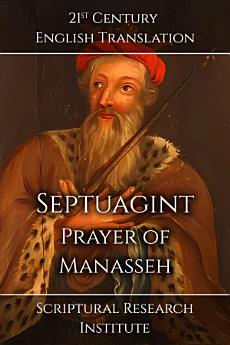Septuagint: Prayer of Manasseh
इस ई-बुक के बारे में जानकारी
The author of the Septuagint's 2nd Paralipomenon (Masoretic Diḇrê Hayyāmîm) attempted to resolve the question of Manasseh's prayer by adding a story of his repentance and return to worshiping the Lord (Masoretic Yahweh) after being imprisoned by the King of Assyria, however, that story is not viewed as possible by many, as it would have meant that Judea was conquered by the Assyrians, who then incarcerated the Judean King in Nineveh. There are no records of this, however, Manasseh is mentioned as the King of Judea in the Assyrian records, and the two nations appear to have had cordial relations. The fact that the author of 2nd Paralipomenon felt he needed to explain the existence of the Prayer of Manasseh, proves it was in use by Jews at the time, although, it may not be the Prayer that ended up in the Septuagint. Fragments of a Hebrew Prayer of Manasseh have been found among the Dead Sea Scrolls, however, not enough of them survives to determine how much the two Prayers originally deviated.











